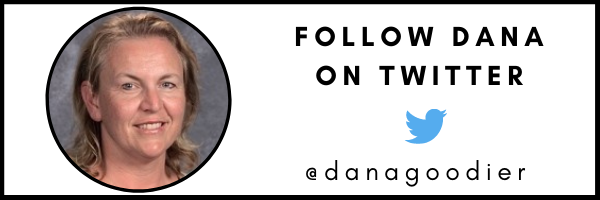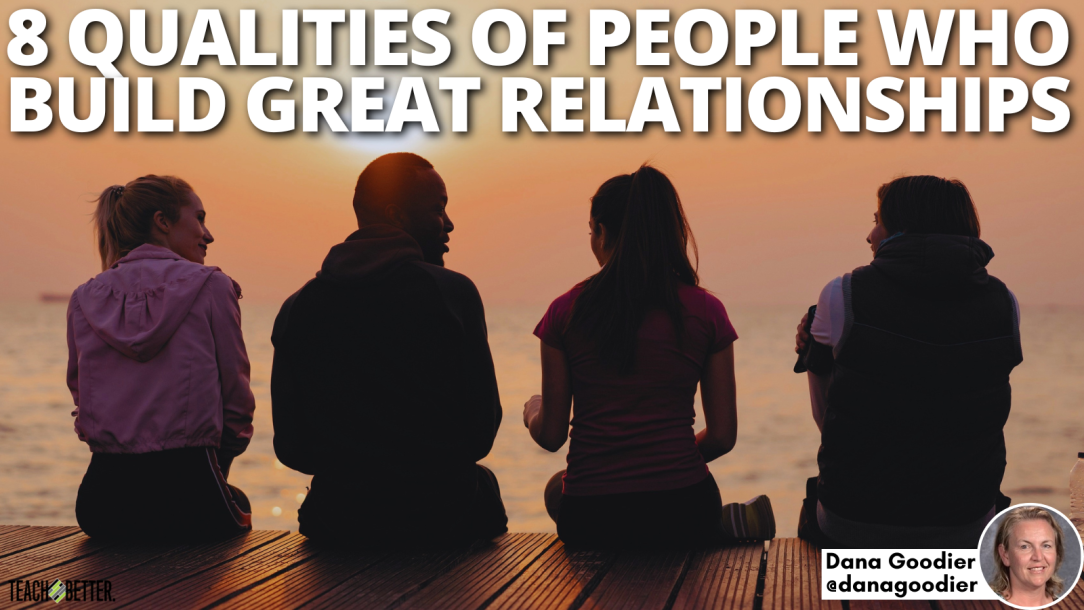TL;DR:
- People who build great relationships listen, make time, are present, admit when they’re wrong, give good advice, are empathetic, commit to trusting others, and think of the other person.
Eight Qualities of People Who Build Great Relationships
While we enter our second or third month of school, many of us have already well-established relationships with our students to have a cohesive classroom environment. If you’re still looking for ways to build and maintain relationships with both your staff and colleagues, here are some qualities we should all strive to have as educators.
Quality #1: Listening
We are natural leaders and tend to speak more than we listen. When we take the time to pause and really listen to our students, colleagues, and stakeholders, it helps the other person feel valued and we are better able to help them.
Quality #2: Making Time
This applies to time for other colleagues. You may have some teachers in your building who are new to the district or brand new to teaching. They most certainly have questions but do not want to impose if you seem too busy to help them. Make sure you’re providing a welcoming atmosphere to them so they’re able to address any concerns with students, parent communications and/or ins and outs of school culture with you at any time.
When we take the time to pause and really listen to our students, colleagues, and stakeholders, it helps the other person feel valued and we are better able to help them. Click To TweetQuality #3: Being Present
This goes without saying in terms of how you present yourself in the classroom, in staff or grade-level meetings and during conversations with stakeholders. Being present will also help you pick up on any issues other may have. It’s an important quality to have while using trauma-informed practices.
Quality #4: Admitting When You’re Wrong
This is often difficult for teachers, especially if you teach high school and made a mistake while going through a math problem or writing something else on the board or doc cam. Also, this applies to administrators who may have hastily made a decision without knowing all the facts. If you’re someone who has a hard time with this, learn how to be more vulnerable in your daily interactions with your spouse, kids, and friends. Hopefully this will transfer over to becoming more humble and able to admit you’re wrong in your work life as well.
Quality #5: Giving Good Advice
When a colleague asks you to observe their class and provide feedback, make sure it’s meaningful feedback. If they want advice on how to work with a particular student or parent, think through a time you were in a similar situation and what worked (or didn’t work). People seeking advice are often looking for a solution to their problem.
Quality #6: Being Empathetic
You can read my blog post from September 2022 to find out more about Michelle Borba’s book Unselfie and how I have used that in helping staff incorporate more kindness into their classrooms. Sometimes just asking yourself “How would I feel if it happened to me?” will put you in a more empathetic mindset.
Quality #7: Committing to Trusting Others
If you are new to a building or district and don’t know your colleagues very well yet, it can be difficult to let them in. If you had a negative experience last year or have recently started teaching or leading at a new level, it takes time to find your groove. When you are asking for support in your position, trust goes a long way in deciding whether or not to take their advice.
[scroll down to keep reading]Quality #8: Thinking of the Other Person
Think of how your students are processing information from the lesson. Think of your interactions with colleagues and how you’re showing up for them. Also, think of anyone in your building who may be struggling and how you can support them.
Growing Takes Time and Effort
While you probably display many of these qualities, think of the ones you should work on using more. You can see, we’re all growing and becoming better as educators, and relationship-building is integral to our daily work and interactions.
You can tweet me @danagoodier and offer any suggestions about other qualities people who build great relationships have. Seek to be understood and understand others through listening, showing compassion, and being empathetic.
About Dana Goodier
Dr. Dana Goodier has 20 years of experience in education. She has taught World Languages and English and worked as a middle school administrator. She completed her doctorate degree (Ed.D.) in Educational Leadership early 2020. For her dissertation, she researched reasons parents were opting their students out of high-stakes testing at middle schools and how that affected the district accreditation rating. She often speaks at conferences, providing educators with techniques to minimize off-task behavior and to increase time on task. She is the host of the “Out of the Trenches” podcast, which features educators who share their stories of resiliency. Follow her on Twitter @danagoodier and visit her website at: www.danagoodier.com




